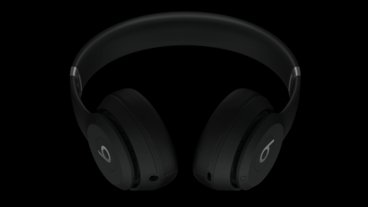Intel resumes shipment of chipsets for systems not affected by design issue
Intel said this week it will ship the existing chipsets — which contain a flaw related to some, but not all, serial-ATA ports — to PC manufacturers who will have use for the parts. All existing manufactured Intel Series 6 chipsets, code-named Cougar Point, contain the error, including those for desktop and mobile systems.
The company also said that the new, fixed version of its support chip will begin shipping in mid-February, a timeline sooner than its previously announced schedule of late February.
The announcement that Sandy Bridge processors have resumed shipments for unaffected systems comes as Intel has confirmed it will meet its deadline to begin shipping Dual-core Sandy Bridge chips on their previously-announced launch date of Feb. 20. The Core i5 and Core i7 microprocessors intended for laptops draw between 17 watts and 35 watts of power, running at speeds between 1.4GHz and 2.7GHz.
The next-generation Sandy Bridge processors are likely bound for both Apple's future MacBook Pro and iMac lineup of products, though whether the Mac hardware would be affected by the Cougar Point design flaw is unknown.
Intel disclosed the issue on Jan. 31, and immediately halted shipment of its latest-generation Sandy Bridge Core processors. The chipmaker found a design issue in which serial-ATA ports within the chipset accompanying the processor could degrade over time.
As of late January, Intel had only shipped desktop-bound Cougar Point chipsets alongside quad-core desktop Sandy Bridge processors. In total, Intel shipped less than 8 million of those desktop parts, and it is believed that fewer than that actually landed in the hands of consumers.
Intel told AppleInsider earlier this month that it is working closely with its partners to address concerns, but would not offer any indication on how the chipset problems could affect Apple hardware. It also declined to reveal whether the Mac maker was among manufacturers who received some of the less than 8 million quad-core Sandy Bridge desktop chips, referring all questions to Apple, which does not comment on forward looking matters.
The problematic Cougar Point chipsets support six serial-ATA ports, which are used to connect devices like disk drives or DVD drives to the system. Intel found, after it began shipping the parts, that SATA ports numbered 2 through 5 on the chipset can degrade in performance over time in extreme conditions. However, the problem apparently does not affect SATA ports 0 or 1, so any system configurations that utilize only those ports would be acceptable, which has allowed Intel to resume shipments.
 Sam Oliver
Sam Oliver










 Mike Wuerthele
Mike Wuerthele
 Christine McKee
Christine McKee
 William Gallagher
William Gallagher
 Andrew Orr
Andrew Orr
 Sponsored Content
Sponsored Content
 Malcolm Owen
Malcolm Owen







